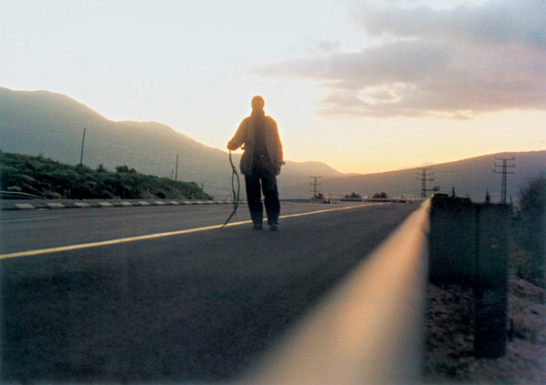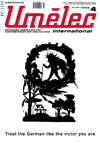| Zeitschrift Umělec 2002/4 >> Tip zcca The Nomad — Artist | Übersicht aller Ausgaben | ||||||||||||
|
|||||||||||||
Tip zcca The Nomad — ArtistZeitschrift Umělec 2002/401.04.2002 Martin Zet | neuigkeiten | en cs |
|||||||||||||
|
The more I stop
belonging somewhere, the more I realize that I come from somewhere. 14. 6. 2002 (The Book of Sighs) Commodities have found other, faster routs than caravans. One can now only choose to lead a nomadic life for what used to be the side effects: to learn about a place and cultural exchange — the intoxicating perhaps illusory sense that you are part of some movement. But frequently changing your location requires a completely different social behavior as well: emotional nongrasping, the ability to exist without the presence of loved ones (if there are any). Easily, routinely creating purposeful and other kinds of friendships that are hard to keep because of their number is also one of the necessary skills. So at the moment of farewell, unfinished dialogues (again always a surprise for all participating parties) break off, sometimes for years, decades, sometimes forever. Those artists that have acquired the nomadic principle thoroughly and truly have no home base, sometimes not even a permanent address, they wander from exhibition to exhibition, from residency to residency, living from grant to grant. Suitcases with their things spread all over the whole world. They are then completely dependent on keeping their popularity. They have to be masters of planning and selfpromotion. One action has to follow another. Any injury or illness seriously complicates the situation, because in most cases they lack large reserves or enough commercial ties. The sequence is disturbed. Energy is not bottomless. With age everything gets more tiring. To go somewhere again? Again new people? I guess no one expects a “nomadic” artist to have a family. Most of the actions that manage to make it to the level where participants are paid are planned for artists who are single. A best case scenario leaves “a couple of crowns” in the pocket for a few weeks. But only for one person. However, besides the financial problems, a family also means emotional difficulties. Absence during key moments. So it happens, for example, that at one departure the nomad says goodbye to a child and hello to the young lady who welcomes him. At some phase the development of the child is almost unbelievably fast and a couple of months is too long a time. On the other hand, one comes to realize solidarity, a limited uniqueness that has no other purpose than the carrier to overestimate. There are hundreds of excellent artists. Some known, some unknown. The portion of all of them on the movement of human consciousness (perception) is irreplaceable. Part of their contribution is still nontransmittable, even using the latest communication technologies. This does not concern only the transmission, the providing of information, it also concerns the grafting of charisma, auras. The generation of topics. Illness, old age — circulation If they are not successful at getting some of their products into circulation in the market or finding a patron, the art nomads may expect, in spite of vast numbers of contacts, very humble ends (if they are not lucky enough to die “on the way”). And if they were not tactical in openly judging (with the criteria getting sharper with age) the works of their colleagues, they can also expect a large number of enemies. So is that what you want? To be “worldly” artist? June 17, 2002, Prague
01.04.2002
Empfohlene Artikel
|
|||||||||||||








Kommentar
Der Artikel ist bisher nicht kommentiert wordenNeuen Kommentar einfügen